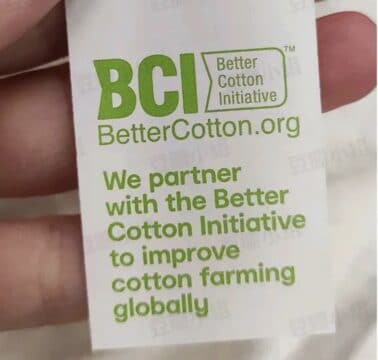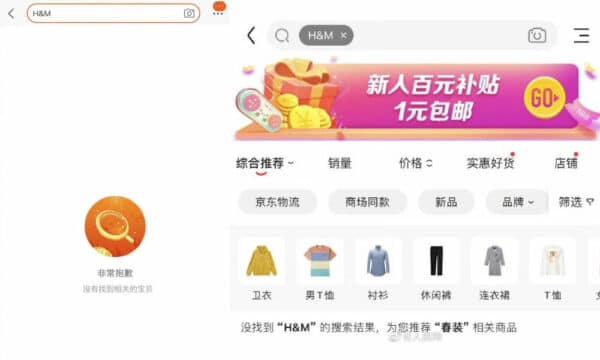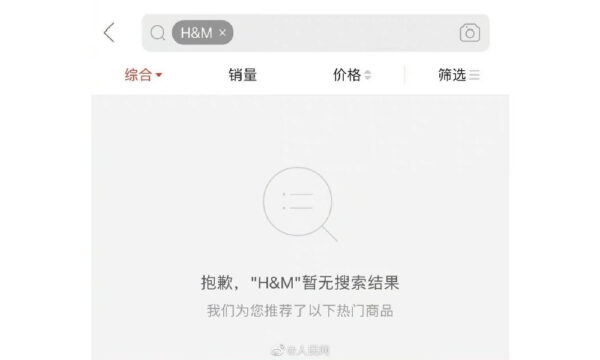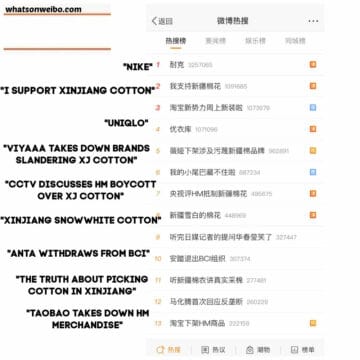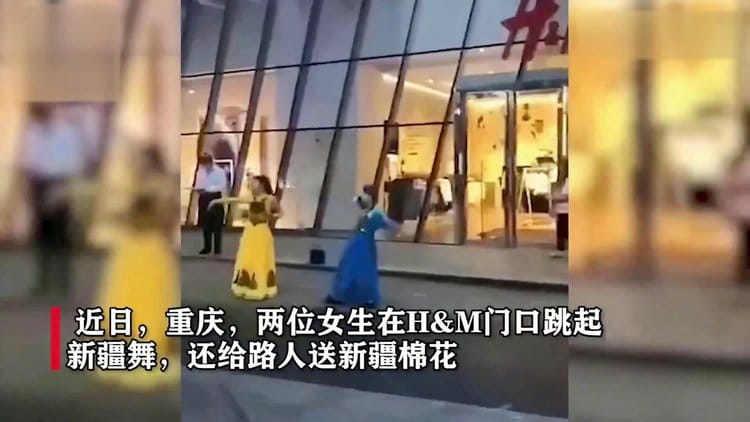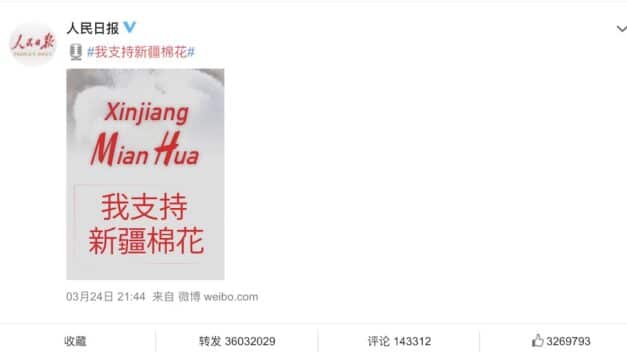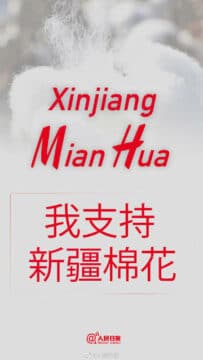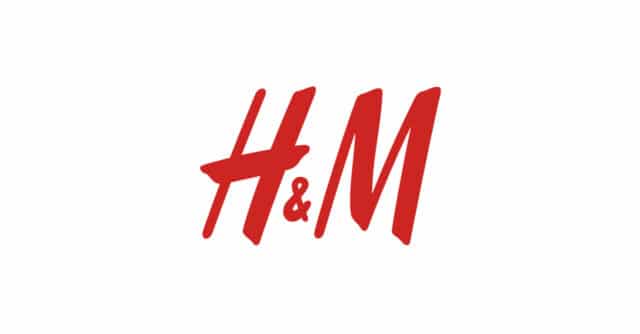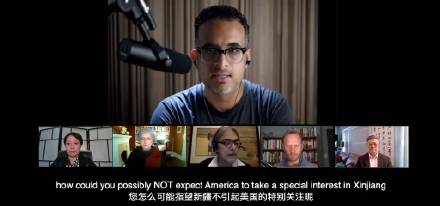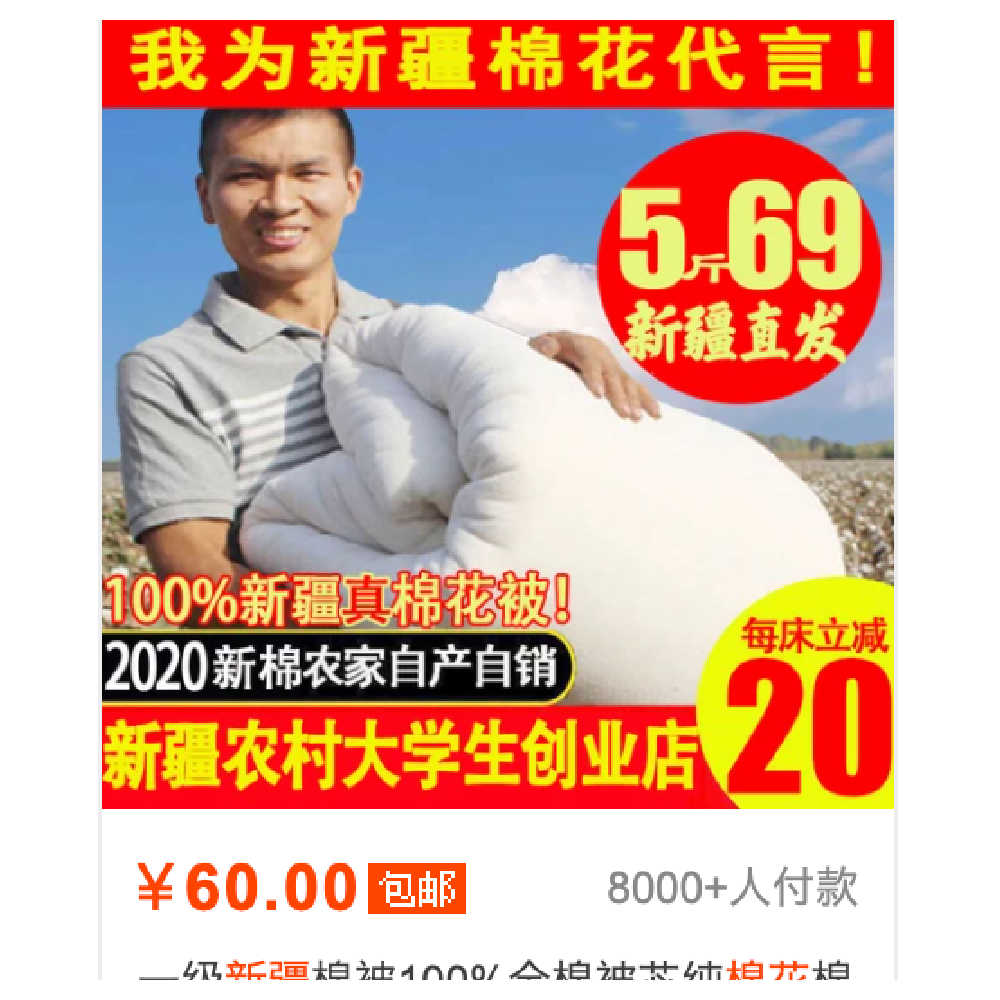In 2019, an extensive brand ‘witch hunt’ took place on Weibo and other Chinese social media networks in light of the protests in Hong Kong, with international fashion and luxury brands, from Versace to Swarovski, getting caught in the crossfire for listing Hong Kong, Macau, and Taiwan as separate countries or regions – not part of China – on their official websites or brand T-shirts.
Now, another brand ‘witch hunt’ is taking place on Chinese social media. This time, it is not about Hong Kong, but about Xinjiang and its cotton industry.
H&M, Uniqlo, Nike, Adidas and other international brands have caused public outrage for the stand they’ve taken against the alleged use of forced labor involving the Muslim Uyghur minority to produce cotton in China’s western region of Xinjiang.
The social media storm started earlier this week on Wednesday, March 24, and is linked to H&M and the ‘BCI’ (Better Cotton Initiative), a Swiss NGO that aims to promote better standards in cotton farming.
In October 2020, H&M shared a statement on its site in which the Swedish retailer said it was “deeply concerned” over reports of forced labor in the production of cotton in Xinjiang, officially Xinjiang Uygur Autonomous Region (XUAR).
H&M stated that it would no longer source cotton from Xinjiang, following the BCI decision to suspend licensing of BCI cotton in the region.
BCI and its Suspension of Activities in Xinjiang
The Better Cotton Initiative (BCI) is the largest cotton sustainability program in the world. It practices across 23 countries and accounts for 22% of global cotton production. The governance group was established in 2005 in cooperation with WWF and leading retailers, with the aim of promoting the widespread use of improved farm practices.
While H&M is a ‘top member’ of the Better Cotton Initiative (link), many others brands such as IKEA, Gap, Adidas, Nike, Levi’s, and C&A are also brand members.
January 2020
In January of 2020, the BCI was slammed by Dr Adrian Zenz, a senior fellow with the Victims of Communism Memorial Foundation in Washington DC, for its refusal to pull out of the Xinjiang region. At the time, 20 percent of its ‘better cotton’ was sourced from Xinjiang, which is China’s largest cotton growing area.
According to a 2020 report by EcoTextile, the BCI maintained that its implicated council member, the yarn producer Huafu, denied the allegations and that an independent audit of the company’s Aksu facility in Xinjiang had failed to identify any instances of forced labor. An earlier report by Adidas from 2019 also stated that their independent investigations found no evidence of forced labor.
March 2020
In late March of 2020, the BCI reportedly did suspend activities with licensed farmers in the Xinjiang region for the 2020/21 cotton season while also contracting a global expert to conduct an external review of the Xinjiang situation. Chinese state media Global Times later reported that despite suspending its licensing activities, the BCI would remain committed to cotton farming communities in Xinjiang and would continue to engage in activities in the region.
July 2020
The pressure on BCI and other brands to stop sourcing from Xinjiang was heightened when a coalition of civil society groups raised concerns over the treatment of the Uyghur Muslim minority in China and the “grave risk of forced labor.” Reuters reported that more than 180 organizations urged brands from Adidas to Amazon to end sourcing of cotton and clothing from the region and cut ties with any suppliers in China that would benefit from the alleged forced labour of Uyghur other Muslim groups.
October 2020
In October of 2020, the Better Cotton Initiative announced it would cease all field-level activities in Xinjiang with immediate effect because the region had reportedly become “an increasingly untenable operating environment.” The aforementioned statement by H&M came out in the same month.
March 2021
By late March 2021, various Chinese state media reported on the BCI suspension. These reports came days after a coordinated effort by the United States, the European Union, Britain and Canada to impose sanctions on Chinese officials over China’s alleged human rights violations and abuses in Xinjiang, something which was called a “concerted effort to slander China’s policies in its Xinjiang region” by Global Times. The news outlet linked these “anti-China forces’ efforts” to the BCI decision to suspend its Xinjiang activities.
A Social Media Storm over Xinjiang Cotton
The news developments were followed by a wave of social media boycott movements and Chinese brand ambassadors cutting ties with international brands, with H&M being the main target over its Xinjiang statement.
Chinese e-commerce platforms Taobao, JD.com, Pinduoduo, Suning.com, and Meituan’s Dianping on Thursday all removed H&M from their platforms, with Chinese Android app stores also removing H&M. On Thursday, a search for “H&M” came up with no results on these sites (see images below).
Two of China’s largest online maps also removed H&M from its systems.
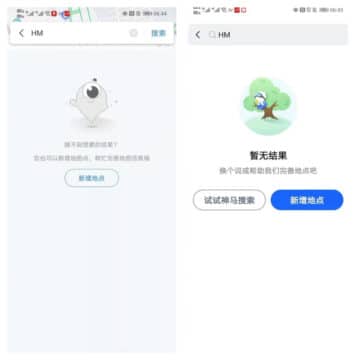
No H&M on these maps.
On Thursday, virtually all topics in Weibo’s top trending lists related to the Xinjiang cotton ban (see image below), with Chinese famous influencers and celebrities one by one announcing they would terminate their contracts with international brands related to the Xinjiang cotton ban.
The storm became so big this week that some people on social media even commented that “if you’re a Chinese celebrity and you don’t have any contracts to terminate now, you’re not doing so well.”
After H&M, an entire list of brands was targeted, including Adidas, Nike, Calvin Klein, New Balance, Tommy Hilfiger, Uniqlo, Converse, Puma, Burberry, and Lacoste.
In light of the heated discussions and calls for boycotts, there was also another hashtag that popped up on Weibo, namely that of “don’t make it hard for the workers” (不要为难打工人). The hashtag came up after some Chinese staff members at Nike and Adidas stores were scolded on a live stream, with netizens calling on people to stay rational and not let the boycott turn into personal attacks on people. But another popular video showed a man in Chongqing calling customers out in an H&M store for buying their “trash.”
Another hashtag gaining many views, 520 million in total, was that of two ‘girls from Xinjiang dancing outside H&M’ (#新疆小姐姐在HM门店外跳新疆舞#) – it was linked to a video that showed two women performing outside of a H&M store in Chongqing.
Meanwhile, some brands, including Chinese company Anta Sports and the Japanese Asics, reportedly announced they would leave the Better Cotton Initiative in order to continue sourcing cotton from Xinjiang.
The discussions on Xinjiang as Weibo saw this week are unprecedented, as ‘Xinjiang’ was previously a sensitive topic on Chinese social media and was barely discussed in political contexts. The last time Xinjiang became a big topic of discussion on Chinese social media was in 2018, when CCTV aired a program on the region’s “vocational education programs” in Xinjiang. That media moment triggered mixed reactions on Weibo, with some commenters wondering what the difference between a ‘re-education center’ and a ‘prison’ is.
Chinese State Media and the ‘Xinjiang Cotton Ban’
While Chinese netizens and celebrities play a major role in the storm that erupted over BCI, H&M, and Xinjiang cotton, the role of Chinese state media is pivotal.
Over the past week, various state media outlets posted strong messages regarding the ban in various ways, the most noteworthy one being People’s Daily‘s “I Support Xinjiang Cotton” (#我支持新疆棉花#) hashtag, which had garnered six billion views by the weekend. “The H&M Group released a statement that sparked outrage among netizens. Let’s pass it on together: Support Xinjiang Cotton,” the tagline of the hashtag page said.
The message came with an image saying “Xinjiang Mianhua” (Xinjiang cotton) in a similar font to the H&M logo, the “H” and “M” within ‘mianhua‘ being identical to the H&M letters.
The image and post by People’s Daily was shared over 36 million times.
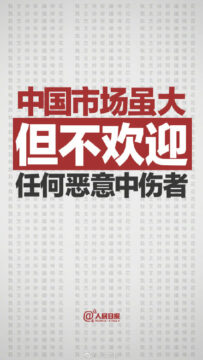
A message by People’s Daily: those who slander China are not welcome.
Another image by People’s Daily published on March 25 said that the Chinese market does not welcome those who slander China.
The Communist Youth League also contributed to the online storm by posting about H&M, writing: “On the one hand they are starting rumors and boycotting Xinjiang cotton, on the other hand they want to make money in China. Dream on, H&M!” That post received around 430,000 likes.
Various official media, including Global Times and China Daily, posted about cotton production in Xinjiang. Besides refuting the forced labor accusations and accusing Western players of hypocrisy and ulterior motives, a recurring issue stressed is how 42 percent of Xinjiang’s cotton is harvested by machines. Ministry of Commerce spokesman Gao Feng was quoted as saying that “the so-called forced labor in Xinjiang is nonexistent and entirely imaginary. The spotless white Xinjiang cotton brooks no slander.”
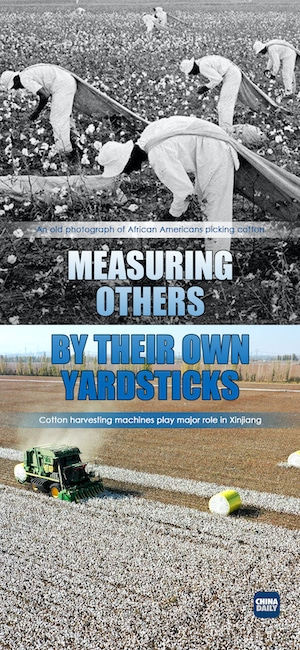
This image was posted by China Daily USA.
On March 27, People’s Daily posted a rap video by ‘Xinjiang Youth’ (新疆青年) on its official Weibo channel (video below) that included some tough lines attacking Western powers, companies, and media.
Chinese state media are now posting this rap song on social media about the “Western forces slandering Xinjiang cotton.” pic.twitter.com/piouahMf80
— Manya Koetse (@manyapan) March 27, 2021
Also noteworthy in this propaganda campaign is how the Canadian YouTuber Daniel Dumbrill got caught up, as what he said in one of his videos was quoted by Foreign Ministry spokesperson Hua Chunying (华春莹) on March 27 during a press conference, with his video being screened before the conference.
In this video, that was part of a larger panel on Xinjiang, Dumbrill responded to the decision-making process on how China’s treatment of Uyghurs is called a “genocide.”
Recently, a number of countries and parliaments including the U.S., Canada and the Netherlands have declared that China’s crackdown on the Muslim minorities amounts to “genocide” in violation of the U.N. Genocide Convention. Dumbrill talks about why the Xinjiang narratives matter to both the foreign and domestic politics of the US and other Western countries, with Dumbril claiming it “isn’t really about human rights and a care for overseas Muslims” but about other political goals. Dumbrill’s video was praised by authorities, state media, and by Chinese netizens.
“We have to push for the truth to come out,” some netizens commented. Others wrote: “But we’re only allowed to discuss it from within [the country].”
Meanwhile, while many companies are seeing sales falling, there are also many who are benefiting from the current developments. Some sellers on Taobao have found another way to attract customers, promoting their products as being made with “100% Xinjiang Cotton!”
As this is an ongoing topic, we will report more later. Meanwhile, don’t forget to follow us on Twitter.
By Manya Koetse, with contributions by Miranda Barnes
Spotted a mistake or want to add something? Please let us know in comments below or email us. First-time commenters, please be patient – we will have to manually approve your comment before it appears.
©2021 Whatsonweibo. All rights reserved. Do not reproduce our content without permission – you can contact us at [email protected].
